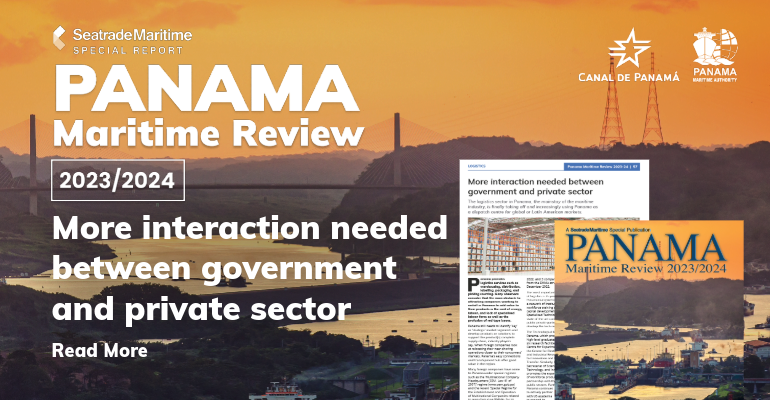The logistics sector in Panama, the mainstay of the maritime industry, is finally taking off and increasingly using Panama as a dispatch centre for global or Latin American markets.
Panama provides logistics services such as warehousing, distribution, labelling, packaging, and picking sourcing. Many observers consider that the main obstacle to attracting companies wanting to install in Panama to add value to their products is the cost of energy, labour, and lack of specialized labour force as well as the profusion of red tape issues.
Related: Women in shipping: Panama’s pioneers
Panama still needs to identify ‘key’ or ‘strategic’ market segments and develop products or solutions to support the product(s) complete supply chain, industry players say. When foreign companies look at relocating their near-shoring operations closer to their consumers’ markets, Panama’s easy connections and transhipment hub offer good value in the region.
Many foreign companies have come to Panama under special regimes such as the ‘Multinational Company Headquarters (SEM– Law 41 of 2007)’ regime and the recent ‘Special Regime for the Establishment and Operation of Multinational Companies related to manufacturing (EMMA-.for its acronym in Spanish Law 159 of August 31, 2020)’. According to the Panama Ministry of Trade and Industry, 188 multinationals were operating under the SEM regime, in 2022, and 3 companies benefitted from the EMMA structure, in December 2022.
The most important component of logistics is its people. The Panamanian government has set up a network of institutions to support workforce training and human capital development. The Superior Specialised Technical Institute is a state-of-the-art campus that drives public-private partnerships to develop the tech-sector workforce.
The Technological University of Panama, which produces 4,000 high-level graduates per year, has six research facilities, including the Centre for Experimental Engineering, the Centre for Electrical, Mechanical, and Industrial Research; and a Centre for Innovation and Technology Transfer. Similarly, the National Secretariat of Science, Technology, and Innovation promotes the expansion of workforce productivity in partnership with the private and public sectors. Furthermore, Panama continues to actively partner with US academia to expand its capabilities.
The Logistics Business Council (COEL) aims at integrating all logistics and related services and facilitating commercial, national, and international exchange. Its members are some 22 associations representing the private sector. They meet once a month with the Logistics Cabinet Council to design or revise policies for the logistics sector, new investments, and labour force training.
Hugo Torrijos Dajer, 45, a young successful entrepreneur, has been elected its president until June 2024 and though a year is not much time to make big changes, he feels he can ‘help the players’ and ‘re-activate the interaction between government and private sector.’
Reference: https://www.seatrade-maritime.com/panama/more-interaction-needed-between-government-and-private-sector

